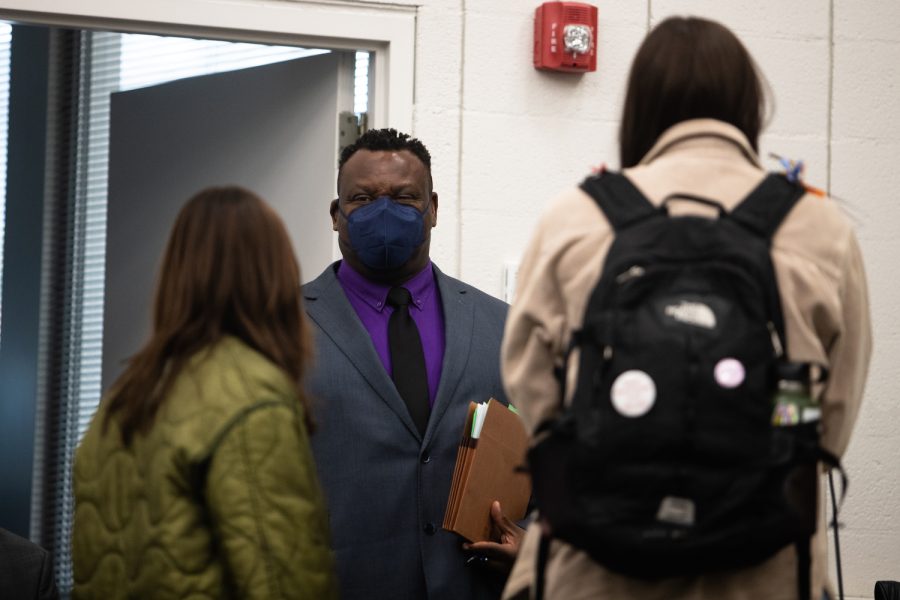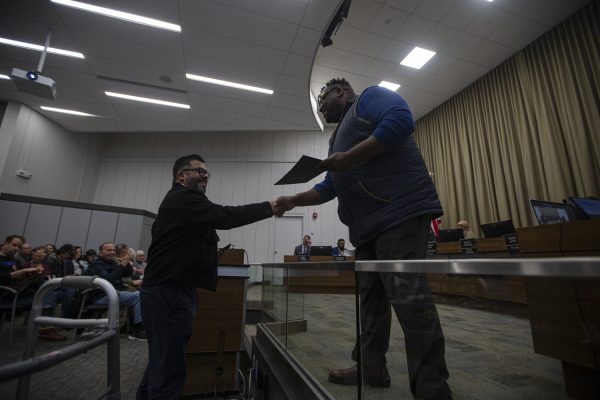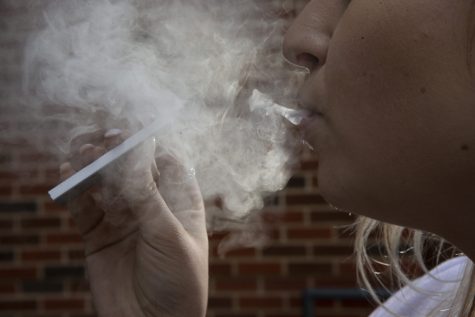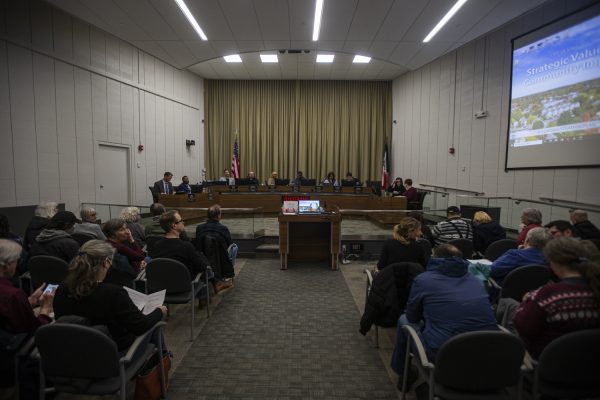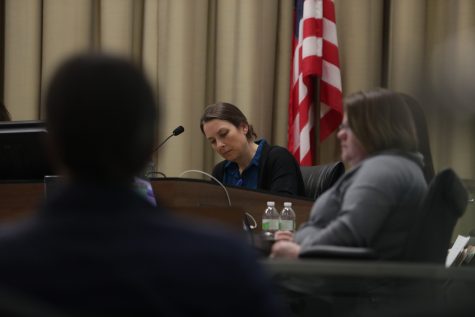Iowa City garbage collection fees to increase
Fees for the collection of solid waste, including recycling and garbage, will increase in July by $1.50 per unit per month.
Mayor Bruce Teague speaks with undergraduate student government members at an Iowa City City Council meeting at City Hall in Iowa City on Tuesday, May 3, 2022.
May 3, 2022
Iowa City residents will see an increase in their solid waste disposal rate of $1.50 per housing unit, per month starting in July as a result of increasing volumes of waste and city costs.
The increase is $1 for curbside garbage collection and 50 cents for curbside recycling. It brings the total monthly cost to $19.50 per unit, per month for trash and recycling. The last fee increase for solid waste was approved in 2018.
The Iowa City City Council approved the increase at its meeting on Tuesday. The increase takes effect for billing cycles following the beginning of fiscal 2023 on July 1, 2022.
The cost of residents’ additional solid waste containers will mirror the cost of the original solid waste service after the adjustment, with its cost also increasing to $13.
Nicole Davies, Iowa City finance director, said during the first consideration at the council’s April 19 meeting that the previous increase was $0.20 for solid waste and $0.90 for recycling per dwelling unit per month.
A yard waste garbage disposal bin cost will also increase to $3.50 per unit from the current price of $2. An additional $3.50 fee per unit, per month for each additional yard waste cart will also be assessed for additional yard waste. The yard waste fee has not been increased since it was first put in place in 2018.
The rate increase was the result of increased volumes of garbage, recycling, and food and yard waste over the past three years. City documents cite an increase of 14 percent in the tonnage of recycling over that time period.
Increased fuel, equipment, and labor costs also influenced the need for a price increase. The rate hike is expected to increase revenue for the refuse collection program by $570,000 per year, according to city documents.
Data presented at the first consideration of the rate increase during the April 19 meeting showed a large increase in solid waste in 2021.
“That’s largely due to the derecho and COVID,” Davies said. “… Most of that is the cost at the landfill to dispose of all the additional refuse.”
Project revenues are expected to outpace expenditures despite the increase, she said.
“We’re still projecting a slight deficit in those years,” Davies said. “We budget pretty conservatively, so hopefully we would actually come out ahead. This gets us much closer to what the gap would be without these rate increases.”
City Councilor Pauline Taylor said she was concerned for low-income individuals and asked Davies about the discount for low-income individuals, which is currently around 75 percent of the full amount.
“They live from penny-to-penny, literally, a lot of them,” Taylor said. “Three dollars might not sound [like] a lot to some folks, but for those that are living on limited incomes, I have concerns about the bump-up.”
City Manager Geoff Fruin said the price increase was tightly calculated and referred to the earlier comments from Davies about the Refuse Collection fund still not making a profit.
“The rates that we’re charging are what we need to pay the staff and fuel the vehicles and dispose of whatever it is we’re picking up,” Fruin said. “There’s no extra built-in there.”
A full breakdown of the new waste disposal costs is available through the ordinance attachment on the city’s website.



